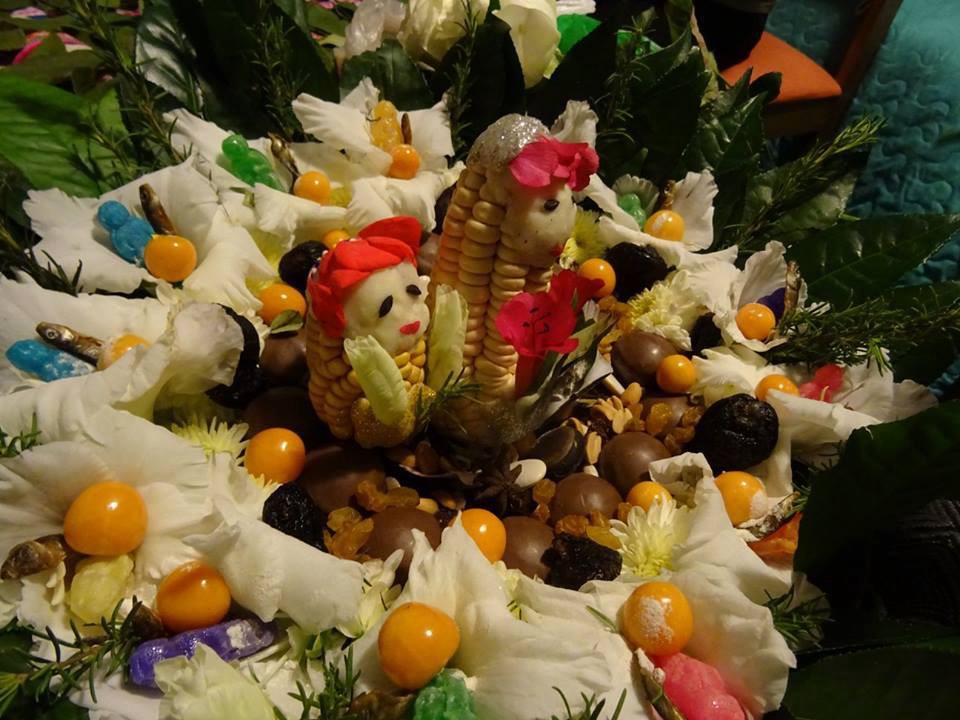By Gerardo López-Amaro
Spirituality, says Elena, is about living life in the simplest, more harmonious and more respectful way among all of us. It is not about praying all day or doing great things. Rather, it is something simple, pure, and beautiful and it happens when we take care of a plant, greeting each other, showing respect and taking care of our Pacha, our mother. The people that have been raised by the Andes and in the Andes have a great gift for turbulent times: the understanding that everything is alive and that life depends on the incommensurable relations of care, love, respect, mutual support and gratitude between the different elements that compose it. We all belong to different ayllus, communities of life, and we all are the ayllu itself. The ayllu is a dynamic space of interbeing, where all beings are related like a family: “it is important to remember that this place [the community] is not where we are from, it is who we are. For example, I am not from Huantura, I am Huantura” (Justo Oxa).
I did a residency in Peru thanks to a grant from the Ecoversities Alliance with the Centro de Promocion de Sabidurias Interculturales (CEPROSI. Center for the Promotion of Intercultural Wisdoms). Elena Pardo has been running this center for the past 20 years, working in the Cusco region with different schools, promoting the revalorization, remembrance and re-activation of the wisdoms embedded in the local culture and fighting against the stereotypes and narratives of mental colonialism that preaches that working with and in the land is a sign of backwardness and the reason for the lack of development and progress –a narrative still common in all of modern Latin American nations, forged with the imprint of eurocentered liberalism.
I met Elena in Costa Rica in February 2017, at the Ecoversities Global Gathering. In the context of an English-speaking majority and the prevalence of discourses of a divisive politics based on reified identities, political correctness, and policing language, her contribution was very inspiring to me. It felt authentic and a breath of fresh air for a South-South dialogue in our network. Later, when we opened a conversation around ‘Dismantling Capitalism’, she shared that capitalism is founded on three pillars: the creation of the individual, the fragmentation of community, and the de-sacralization of life. For her, what is necessary is a ‘política de encariñamiento’, a term that is hard to translate — and I will not attempt to do so — but that evokes politics as a process of falling in love, of being tender and feeling tenderness, of mutual care and respect) that allow for the re-enchantment with the world and with life. As somebody that has grown up influenced by the idea of the Zapatistas that ‘another politics is possible’, I was very curious to see in practice this politics otherwise, and after long conversations I went to Peru and stayed for a month in Cusco, learning from the experience of CEPROSI.
La política de encariñamiento must be felt, walked, smelled, sung, and lived. It is visceral, corporeal, and elusive with words. In my time in Cusco, I was invited to experience the work of different ayllus composed by human, non-human and more-than-human beings. Apus were always greeted and always present in our activities, either at a meeting, a workshop, a hike, sharing drinks and food, or in ceremony. Children were singing in Quechua to Killalay and Intilay (Mother Moon and Father Sun), preparing for the Watunakuy, the winter solstice celebration that honors seeds and that is the culmination of a year of work. In 8 different schools, Elena’s team (Donato, Inés, and Julián), teachers, children, parents, and wise women and men from the different communities reinvent, disrupt and transform modern school, creating a communal space through the work in the chacra (the plot of land where families farm), learning to read the signs of nature, the cosmic cycles, the good time for seeds and for plants, the good food and the good song for planting, and the good food and the good song for harvesting. Throughout the year, classes alternate between the physical spaces of school and the chacra (this one belongs to the community and is located outside of the facilities of public schools). In between Math, Spanish and Natural Sciences, children (and teachers) have the opportunity to learn from those that did not forget another kind of knowledge and that can share with them the expertise of people that have cultivated wise, nutritious and delicious food for generations.
CEPROSI’s experience sets in motion a set of ecologies of practice and shows a different pedagogy profoundly connected to land, territory, and culture, a spiritual understanding of life, and the creation of viable alternatives to capitalist development. The residency in Peru allowed for a deeper exploration of ethical collaborations between the Escuela Campesina de Educacion Popular y Alternativas Sustentables in Mexico, and there are several projects being designed with the aim of implementing them this year: the realization of a Watunakuy in Mexico, and an (un)learning journey following the Urubamba and the Amazon river.
The relational understanding of life, the enactment of a different ontology, the intercultural dialogue and translation, and the unfolding of a modernity of their own, are all elements from the living Andean cultures that are a valuable gift for the planetary quest for alternatives to global warming, food scarcity, inequalities, war economies, essentialisms and fundamentalisms.



